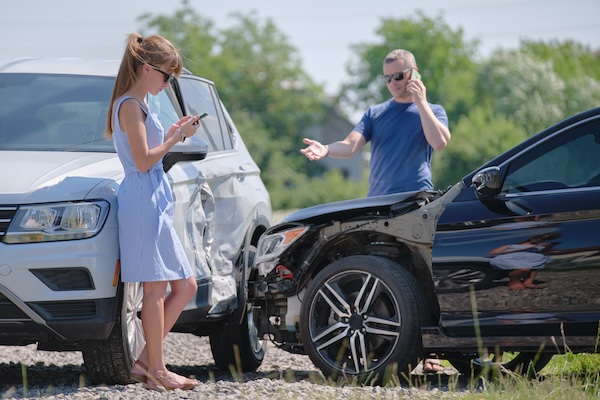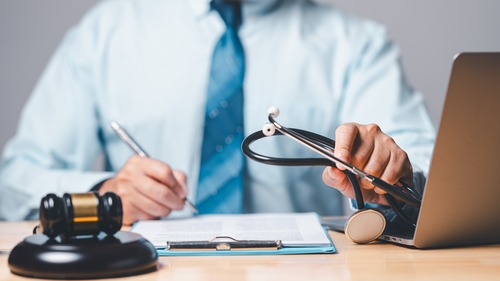When you’re involved in a car accident in Georgia, knowing how the state’s Georgia At-Fault Car Accident Laws work can make a huge difference in how you handle your insurance claim, legal actions, and compensation. Georgia operates under an at fault system, which means the at fault driver is responsible for covering damages and injuries resulting from the accident. Understanding these laws can empower accident victims to seek compensation fairly and legally.
Georgia Is an At-Fault State
Unlike no fault states, Georgia law follows a fault based system. In a car crash, the at fault driver’s insurance is typically responsible for paying for medical expenses, vehicle repairs, and lost wages. This is why determining fault accurately is critical for drivers involved in any accident in Georgia.
Modified Comparative Negligence Rule
Georgia follows a modified comparative negligence rule, which is essential in personal injury claims. This means if you are less than 50% responsible for the accident, you can still recover damages. However, your compensation will be reduced by your percentage of fault. If multiple parties share fault, the courts will assign percentages to each driver, affecting their ability to recover compensation.
Minimum Liability Insurance Requirements
Under Georgia At-Fault Car Accident Laws, all drivers must carry minimum liability insurance. This includes:
- $25,000 for bodily injury per person
- $50,000 for bodily injury per accident
- $25,000 for property damage
These requirements ensure that the at fault party can cover the other party’s medical bills and vehicle repairs.
Role of Insurance Companies
After an accident, an insurance company investigates the claim and determines the extent of their liability. Insurance adjusters analyze accident reports, medical records, witness statements, and even the police report to determine who was at fault.
Proving Fault in a Car Accident Case
Proving fault in auto accidents involves demonstrating that the at fault driver failed to exercise reasonable care under the circumstances. Evidence such as accident scene photos, witness statements, and damage to the vehicles involved helps establish who was at fault.
Common Scenarios Where One Driver Is at Fault
- Rear end accidents: Typically, the driver who rear-ends another is at fault.
- Running a red light or stop sign
- Driving under the influence
- Distracted driving
In each case, Georgia At-Fault Car Accident Laws apply in assigning blame and liability.
The Importance of the Police Report
The police report serves as a neutral document outlining what happened during the car crash. It includes statements from the drivers involved, witnesses, and law enforcement’s assessment of who was likely at fault.
Filing an Insurance Claim
Once fault is determined, you can file a claim with the at fault driver’s insurance. This process includes submitting evidence of your medical bills, vehicle repairs, and lost wages. The goal is to ensure fair compensation under Georgia law.
When to Consider a Personal Injury Lawsuit
If your damages exceed the liability insurance limits or the insurance company denies claims, you may need to file a personal injury lawsuit. A successful case allows you to recover compensation for own damages, including pain and suffering, medical expenses, and lost wages.
Role of a Car Accident Lawyer
Hiring a qualified car accident lawyer can help you navigate complex Georgia At-Fault Car Accident Laws. Legal experts know how to collect evidence, deal with insurance adjusters, and ensure you receive maximum compensation for your losses.
Dealing With Comparative Fault
Georgia’s comparative fault system allows some recovery even if you’re partially at fault. However, if you’re found to be 50% or more at fault, you cannot seek compensation. An experienced attorney can help limit your percentage of fault to ensure you get paid for your own damages.
Personal Injury Protection Is Not Mandatory
Unlike no fault states, Georgia does not require personal injury protection (PIP). Instead, the burden falls on the at fault party through their driver’s insurance covers. This reinforces the need to establish fault accurately.
Challenges When Multiple Parties Are Involved
In accidents where multiple parties share fault, things get complex. Each driver’s actions are assessed based on traffic law and evidence from the accident scene. Calculating each party’s share of the blame helps courts and insurance companies determine payouts.
What Happens If the At-Fault Driver Is Uninsured?
If the at fault driver lacks insurance, you can file a claim through your auto insurance if you have uninsured motorist coverage. Otherwise, you might need to sue the individual, although recovering from them may be difficult.
How to Maximize Your Compensation
To receive maximum compensation, you must build a compelling, evidence-backed case that supports your claims. Proper documentation and timely action are key.
- Take photos of the accident scene: Capture wide and close-up shots of all vehicles involved, damage, road conditions, traffic signs, skid marks, and any visible injuries. These images serve as undeniable visual evidence.
- Collect witness statements: Speak to any drivers involved, pedestrians, or bystanders who saw the crash. Record their statements and contact information immediately while their memories are fresh.
- Secure a copy of the police report: The police report is an official account of the accident scene and often includes preliminary findings on fault. This document can strongly support your insurance claim or personal injury lawsuit.
- Keep track of all medical bills and vehicle repairs: Save receipts, invoices, and documentation of all expenses, including emergency room visits, follow-up appointments, medication, and vehicle repairs. These records prove your own damages and quantify your losses.
Additionally, maintain a journal of your pain levels, emotional distress, and recovery process. This can support claims for non-economic damages like pain and suffering. If you’re forced to miss work, include pay stubs and a note from your employer to document lost wages.
A strong case backed by evidence improves your chances of recovering compensation for your own damages. Being organized, proactive, and legally informed can make a significant difference in your financial recovery.
Why Fault Matters
Fault impacts who pays and how much. Under the Georgia At-Fault Car Accident Laws, the at fault driver’s insurance is the first line of recovery. However, understanding the modified comparative negligence rules ensures you’re not unfairly penalized.
Steps to Take After a Car Crash in Georgia
- Call the police and file a report: Always notify law enforcement immediately after an accident, no matter how minor it may seem. A police report provides an objective summary of the incident, which is essential for proving fault and filing an insurance claim.
- Exchange information with drivers involved: Collect the names, addresses, phone numbers, driver’s license numbers, and insurance company details of all drivers involved. Also gather contact info for any passengers.
- Document the accident scene: Take clear photographs and videos of the accident scene, including the vehicles involved, their positions, visible damages, road conditions, traffic signals, and any injuries. This visual evidence supports your version of events.
- Seek medical treatment and keep medical records: Even if injuries appear minor, get evaluated by a medical professional. Some injuries may not show symptoms immediately. Keep all documentation including bills, diagnoses, prescriptions, and treatment plans. This builds a comprehensive picture of your medical expenses and helps justify your claim.
- Notify your insurance company: Contact your insurance company as soon as possible to report the car crash. Provide accurate information and avoid admitting fault. Your insurer will open a claim and may assign an insurance adjuster to investigate.
- Contact a car accident lawyer for a free consultation: A qualified car accident lawyer can offer a free consultation to evaluate your case. They help interpret Georgia At-Fault Car Accident Laws, guide your interactions with insurers, and assist in gathering critical evidence to ensure you receive fair compensation.
Common Mistakes to Avoid
- Admitting fault at the scene: In the immediate aftermath of an accident, emotions run high and details may be unclear. Avoid saying anything that might be interpreted as an admission of guilt, even a simple “I’m sorry.” Fault should only be determined after a full investigation.
- Failing to collect sufficient evidence: If you don’t gather documentation at the scene, you may lose valuable proof needed to establish fault or support your damages claim. Always take photos, gather contact information, and speak to any witnesses.
- Not seeking medical care: Some injuries, especially soft-tissue injuries, don’t show symptoms right away. Delaying treatment can not only jeopardize your health but also weaken your case, as insurers may argue your injuries weren’t serious or accident-related.
- Ignoring deadlines for filing an insurance claim or lawsuit: Georgia law imposes strict time limits for pursuing claims. Failing to file your insurance claim promptly or missing the statute of limitations for a personal injury lawsuit can completely bar you from recovering compensation.
Avoid these errors to protect your ability to recover compensation and receive the maximum compensation allowed under Georgia At-Fault Car Accident Laws.
Get Expert Help from Atlanta Accident Lawyers
Understanding Georgia At-Fault Car Accident Laws is essential if you’re ever in a car accident in Georgia. The at fault system, modified comparative fault rule, and requirements for minimum liability insurance all shape how cases are resolved. If you’ve suffered due to someone else’s negligence, knowing your rights can be the key to receiving fair compensation. Don’t hesitate to reach out to a car accident lawyer for a free consultation and help navigating the system.
If you’re looking to make sense of a recent car crash, review the Georgia At-Fault Car Accident Laws and seek professional guidance to ensure your own damages are fully addressed.
Call Atlanta Accident Lawyers today 864-444-2062 for experienced, aggressive representation that gets results. Our team knows Georgia traffic law, how to deal with insurance companies that try to deny claims, and how to fight for the full compensation you deserve. Schedule your free consultation now and take the first step toward justice and recovery.









